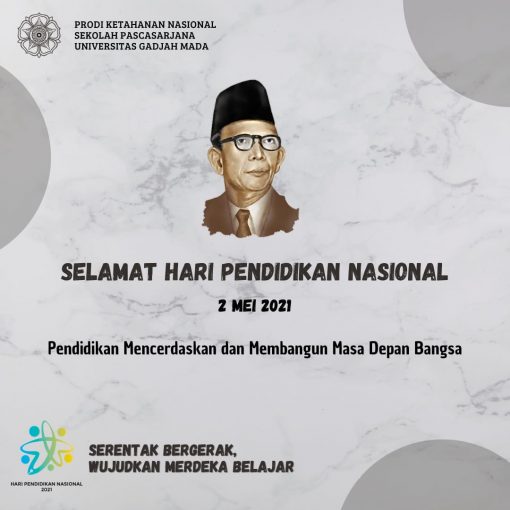
HAPPY NATIONAL EDUCATION DAY!
On May 2 each year, Indonesia celebrates National Education Day, also known as HARDIKNAS (abbreviation for Hari Pendidikan Nasional). It honors Ki Hajar Dewantara, a pioneer of education for native Indonesian during the colonial era. Soewardi Soerjaningrat (he changed his name to Ki Hajar Dewantara in 1922) was born on May 2, 1889. Thanks to his family’s aristocratic background, he was able to get education, which was a rare occurrence in the Dutch East Indies.
In 1922, he founded his educational movement known as Taman Siswa. It was aimed at providing education for native population. He also developed the educational philosophy Tut Wuri Handayani. It describes an ideal teacher who not only transmits knowledge to his students, but also encourages them in their further quest for knowledge. When Indonesia declared its independence, Ki Hajar Dewantara was appointed as Minister of Education and Culture in the country’s first cabinet. He died on April 26, 1959. In November 1959, President Sukarno declared Ki Hajar Dewantara a National Hero of Indonesia and the Father of Indonesian National Education. His birthday was appointed as the National Education Day and has been celebrated annually ever since.
Now, the National Education Day occurs in the wake of the COVID-19 pandemic that led to a national learning disruption of unprecedented scale and severity. The closure of schools, universities and other learning institutions, as well as the interruption of many literacy and lifelong learning programmes, has affected the lives of over 45,5 millions students in over 34 provinces. Now is the time to step up collaboration and national solidarity to place education and lifelong learning at the centre of the recovery and the transformation towards more inclusive, safe and sustainable societies.
Gadjah Mada University’s National Resilience Programme wish you Happy National Education Day! Hopefully our Indonesia can be developed , starting from best quality education and resultant products. Indonesian needs the best leader, the leader who come from the citizen, but the educational citizen. A great leaders created when all of the state components support the education.
